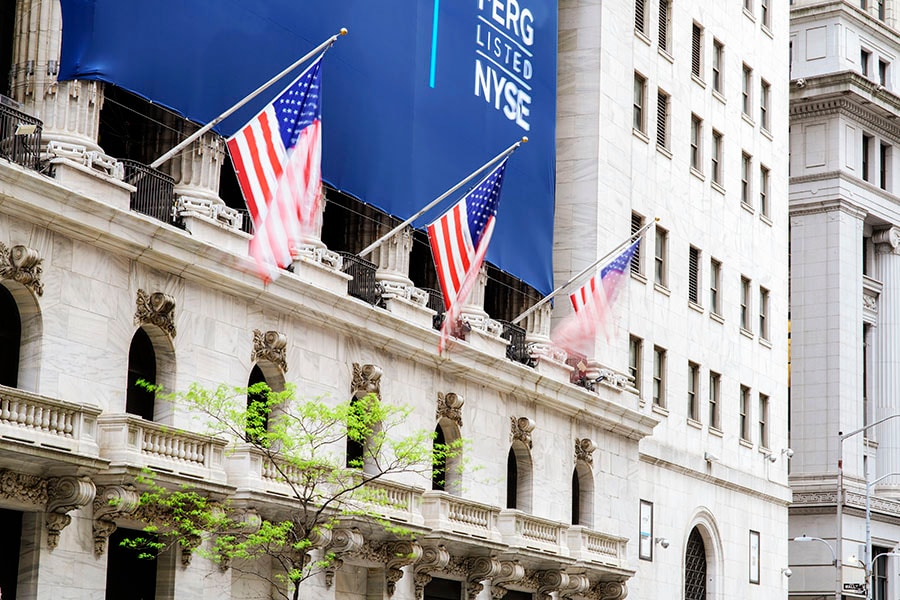
Cracking down on a Wall Street trend: ESG makeovers
ESG fund makeovers have become the trend du jour on Wall Street: BlackRock, J.P. Morgan, Morgan Stanley, HSBC, are among 90 mutual funds and ETFs that have rebranded themselves as ESG dedicated funds, seeking to cash in on growing investor demand for such investments. But what may have seemed like a harmless marketing move is now causing some eyebrow raising
 The New York Stock Exchange building in New York, May 12, 2021. Makeovers of mutual funds into funds with do-gooder claims have become the trend du jour on Wall Street. (Gili Benita/The New York Times)
The New York Stock Exchange building in New York, May 12, 2021. Makeovers of mutual funds into funds with do-gooder claims have become the trend du jour on Wall Street. (Gili Benita/The New York Times)
In early 2018, Goldman Sachs gave one of its decades-old mutual funds a makeover. It had been invested in the stocks of large European and Japanese companies across many industries, but suddenly it became the Goldman Sachs International Equity ESG Fund. Its new investing mandate: Choose foreign companies with the best reputations on environmental, social and governance policies.
ESG fund makeovers have become the trend du jour on Wall Street: BlackRock, J.P. Morgan, Morgan Stanley, HSBC, WisdomTree, Putnam and MassMutual have all done it. Over the past five years, about 90 mutual funds and ETFs have undertaken similar revamps, according to the mutual fund rating firm Morningstar. And Wall Street firms have started hundreds of brand-new ESG dedicated funds, seeking to cash in on growing investor demand for such investments.
Overall, there are 588 sustainable funds and ETFs in the United States, according to Morningstar — an increase from 203 in 2017. The assets in them have grown to $296 billion from $70 billion.
But what may have seemed like a harmless marketing move is now causing some eyebrow raising: Securities regulators are starting to question whether their do-gooder claims are real or fraudulent, at the same time that regulators are seeking to enact new rules and guidelines for what constitutes an ESG investment product or strategy.
SEC expands its crackdown
It’s the Wall Street version of a truth-in-advertising crackdown, and it’s a focal point for a special ESG enforcement task force set up last year by the Securities and Exchange Commission. The task force is essentially looking for instances of banks and money managers engaging in “greenwashing” — using misleading claims to make their investment funds or strategies appear to be ESG-compliant.
©2019 New York Times News Service







